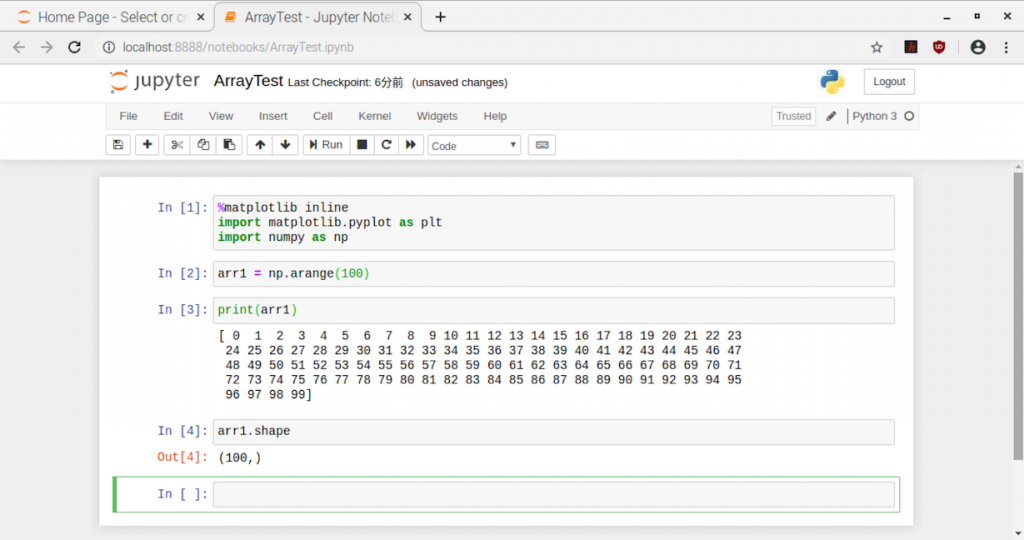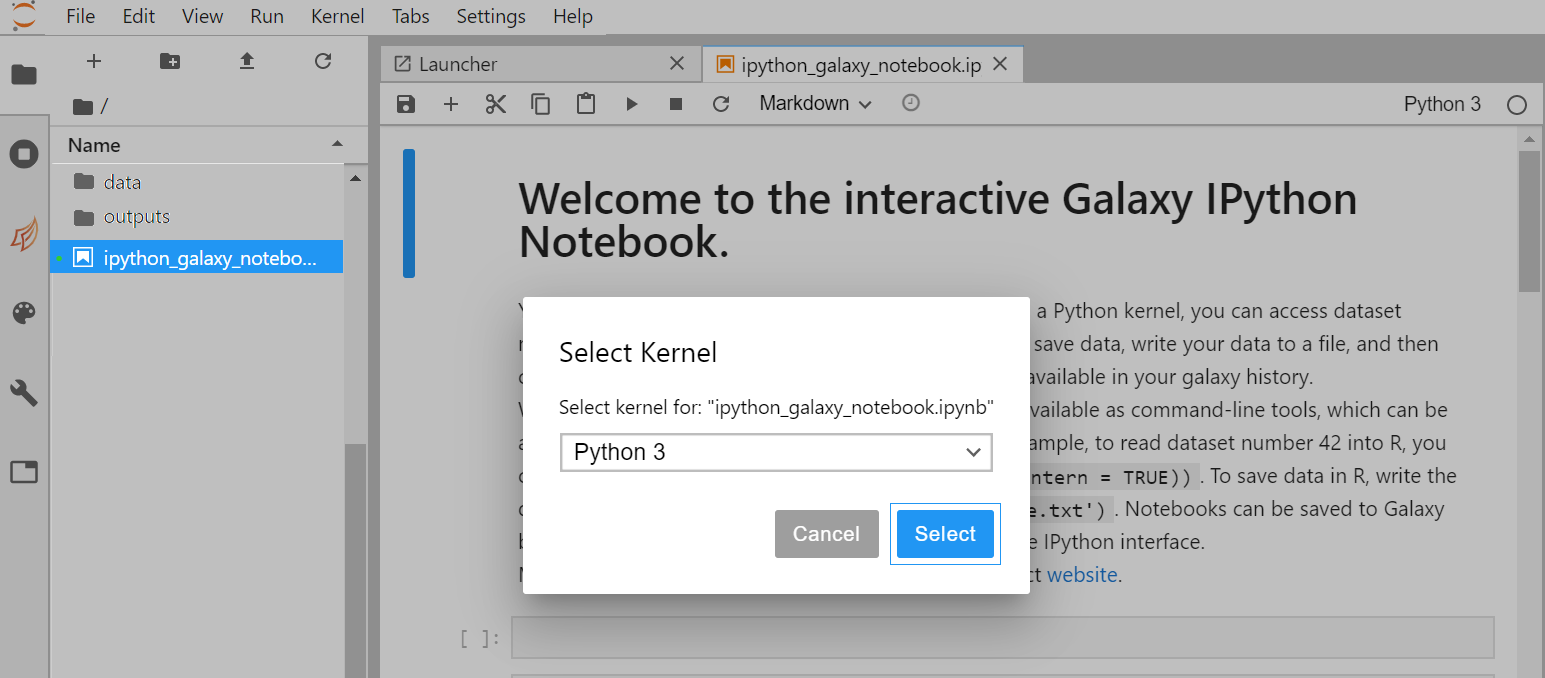

- JUPYTERLAB R KERNEL HOW TO
- JUPYTERLAB R KERNEL INSTALL
- JUPYTERLAB R KERNEL SOFTWARE
- JUPYTERLAB R KERNEL CODE
Many software kernels are available for use with Jupyter. Once installed, when launching Jupyter on OnDemand, the kernels will show up on a Launcher tab (File > New Launcher) and when selecting kernels through other methods. When installing kernels, make sure to use descriptive names in order to distinguish among them. To learn more about installing software on CARC systems using the software module system, see the Software Module System user guide.
JUPYTERLAB R KERNEL INSTALL
Install the kernels when logged in to CARC systems before accessing them via the JupyterLab OnDemand interactive app.

The following provides installation instructions for a few popular Jupyter kernels, which will be installed in your home directory at ~/.local/share/jupyter/kernels.
JUPYTERLAB R KERNEL CODE
For more information about OnDemand and using Jupyter notebooks, see the Getting Started with CARC OnDemand user guide.Ī Jupyter kernel is a programming language-specific process that executes the code contained in a Jupyter notebook. My environment = OS X 10.10, R 3.This user guide provides instructions for installing Jupyter kernels for use with the JupyterLab interactive app via CARC OnDemand. Fire up your terminal one more time, throw the IPython command and keep your fingers crossed! ipython notebook In your terminal type: ipython kernelspec install -replace -name ir -user /Library/Frameworks/R.framework/Versions/3.1/Resources/library/IRkernel/kernelspecĪfter you run that in terminal, go back into R and run: library ( IRdisplay ) library ( IRkernel ) installspec ()Īt this point you should be set to go. In that case, there is a simple work-around. If that is the case, then you’ve quickly found the problem that took me hours of detective work to track down.

print ( system.file ( "kernelspec", package = "IRkernel" ))Ĭhances are the package is sending the R kernel to somewhere like “/Library/Frameworks/R.framework/Versions/3.1/Resources/library/IRkernel/kernelspec”. Run the following command in R to find the path IRkernel is hitting. In my case, installspec() wouldn’t fire up, so I did a little detective work. Then in R: library ( RCurl ) library ( devtools ) install_local ( './rzmq' ) install_github ( 'IRkernel/repr' ) install_github ( "IRkernel/IRdisplay" ) install_github ( "IRkernel/IRkernel" )Īt this point the R kernel should work (in theory) by executing the installspec() function from your new IRkernel package but… Make sure to place the file in your R working directory. Note, since the rzmq package includes dependencies, we’ll be cloning the GitHub repo and installing it locally. Note, it may be a good idea to install them one at a time. If you use Homebrew: brew install libzmq3Īssuming that those libraries brewed without any errors, start R in your terminal by typing “R” or fire up R-Studio. My original method: If the above method doesn’t work, you may have more luck here.

JUPYTERLAB R KERNEL HOW TO
If not, the instructions below show you how to clone the IRkernel GitHub repo and install from source on your local machine. install.packages ( c ( 'rzmq', 'repr', 'IRkernel', 'IRdisplay' ), repos = c ( '', getOption ( 'repos' )), type = 'source' ) IRkernel :: installspec ( user = FALSE ) Next, fire up R, install from source and start your kernel. Or, if you use MacPorts sudo port install zmq If you use Homebrew: xcode-select -install Note: Make sure you’ve got Xcode installed. Update: This install method is less involved The ability to add an R kernel to the IPython environment gives one the ability to run Python and R side-by-side in the same programming environment. IPython is a great tool for developers, particularly for R programmers who are accustomed to the luxury of running blocks of code during development.


 0 kommentar(er)
0 kommentar(er)
